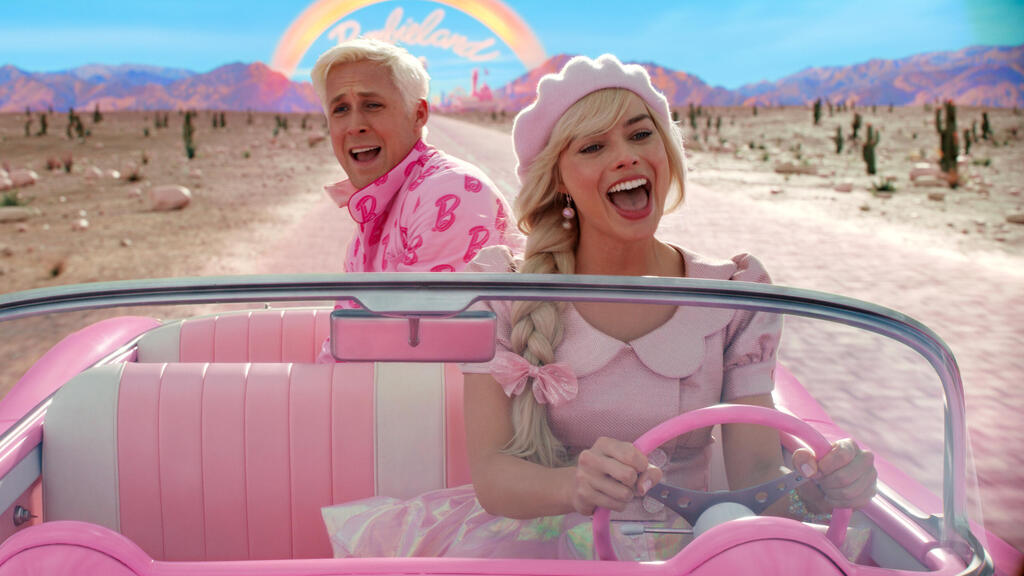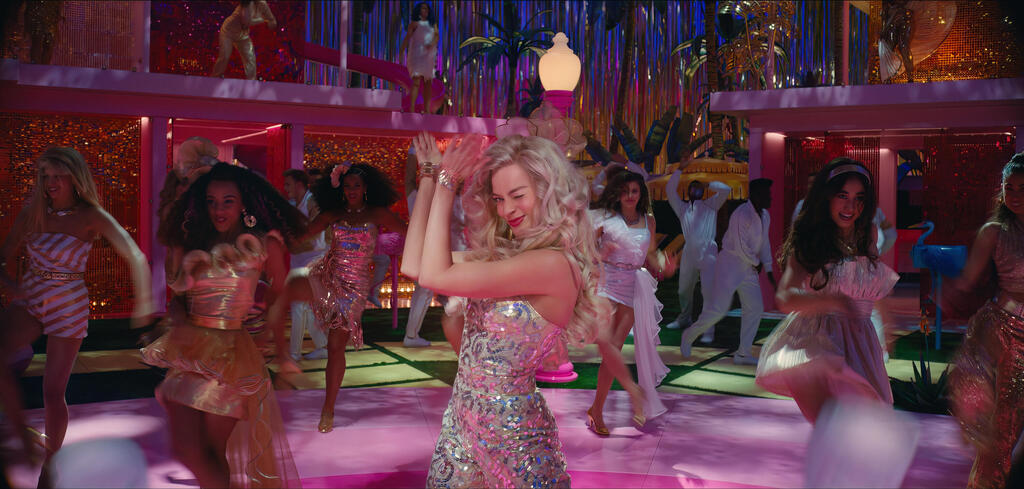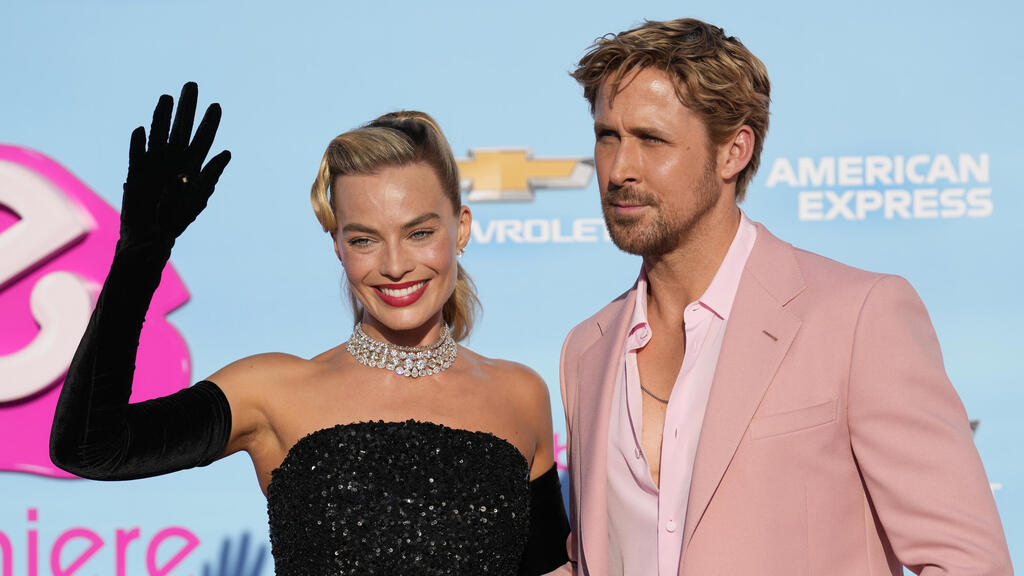Despite its smashing success at global box offices, Barbie has met a mixed response in the Middle East.
Read more:
The film, which has netted over $1 billion worldwide to date, premiered in the United States on July 9 and was subsequently released in numerous other countries, including in the Middle East and North Africa. It opened in Morocco and Tunisia on July 19, Algeria and Israel on July 20, Turkey on July 21, and Bahrain, Saudi Arabia and the United Arab Emirates on August 10. Barbie is scheduled to be released in Egypt on August 30, according to a statement by Safwat al-Helbawy, the head of a major Egyptian movie distribution company.
4 View gallery


A scene from 'Barbie' - its release was delayed in some Middle Eastern countries to allow for censorship committees to review and edit it
(Photo: Courtesy of Tulip Entertainment)
However, both Lebanon and Kuwait have moved to ban the movie, citing inappropriate themes that contradict their conservative values. It remains unclear where else across the region the movie may be released.
In some Middle Eastern countries, the originally planned July release date has been delayed to late August to allow the countries’ censorship authorities to review the movie and suggest edits.
The UAE Media Council has granted the Barbie movie approval to be screened in the UAE’s licensed cinemas after completing the necessary procedures in line with the standards of media content and the UAE age classification
The release of the movie on August 10 in both Saudi Arabia and the UAE suggests that their proposed changes were made.
“The UAE Media Council has granted the Barbie movie the approval to be screened in the UAE’s licensed cinemas after completing the necessary procedures in line with the standards of media content and the UAE age classification,” the UAE Media Council announced on Thursday.
The delay was most likely in response to perceived LGBTQ+ messaging in the film, which features no explicit LGBTQ+ content but does include several openly LGBTQ+ actors, including Kate McKinnon and Hari Nef. Directed by Greta Gerwig and starring Margot Robbie and Ryan Gosling, the film’s wider themes of challenging patriarchy and promoting gender inclusion may be the real source of controversy in the predominantly traditional and religious region.
Both the UAE and Saudi Arabia also notably banned another summer blockbuster, "Spiderman: Across the Spiderverse," likely due to a scene featuring a flag reading “Protect Trans Lives.”
Previous straight-to-video Barbie movies have been banned in Saudi Arabia for their portrayal of equal gender roles. By allowing Barbie to open, Saudi Arabia may be attempting to shape its global image as more culturally progressive, despite the challenge presented by the movie’s themes.
The film’s wider themes of challenging patriarchy and promoting gender inclusion may be the real source of controversy in the predominantly traditional and religious region
Kuwait announced its ban on the movie on Wednesday, citing “ideas and beliefs that are alien to the Kuwaiti society and public order,” without further elaboration, according to the state-run KUNA news agency.
The movie Barbie contradicts moral and faith values and established principles in Lebanon, as it promotes homosexuality and transgenderism and promotes an ugly idea
In Lebanon, Culture Minister Mohammad Mortada submitted a request to ban the film to the General Security Agency, which oversees the country’s censorship committee. This move has sparked a wide backlash in Lebanon, which has a history of relative tolerance for its LGBTQ+ community, although that community has come increasingly under fire with the rise of Islamist and conservative Christian groups that have arisen with the country’s economic crisis.
“The movie Barbie contradicts moral and faith values and established principles in Lebanon, as it promotes homosexuality and transgenderism and promotes an ugly idea of rejecting the father’s guardianship, belittling and ridiculing the mother’s role, questioning the necessity of marriage and building a family, and portraying them as an obstacle to the individual’s self-development, especially for women,” Mortada wrote in a statement.
Lebanon’s move toward banning the movie falls in line with Iran’s strict and growing crackdown on homosexuality, championed by Hezbollah head Hassan Nasrallah.
According to the Free Press Journal, Iran has permanently banned the movie.
Pakistan’s Punjab province has delayed the movie’s release due to “objectionable content.” The move was met with outrage and allegations that the Punjab censorship board is giving in to religious extremists, according to The Guardian.
The self-proclaimed and self-anointed guardians of public morality who run the Punjab censorship board perhaps feel that a film as innocuous as Barbie can shake the beliefs and values of the 100 million people who reside in the country’s largest province
In November, Pakistan banned "Joyland," Pakistan’s entry to the 2023 Academy Awards, for violations of “norms of decency and morality of the society,” as the movie portrays a transgender woman. The national ban was later lifted after review by the national censorship board but remained in Punjab, Pakistan’s most populous province.
“This is quite similar to 'Joyland' and is very arbitrary. It goes against the very freedoms guaranteed by the constitution,” said attorney Osama Malik. “The self-proclaimed and self-anointed guardians of public morality who run the Punjab censorship board perhaps feel that a film as innocuous as Barbie can shake the beliefs and values of the 100 million people who reside in the country’s largest province.”
In Morocco, Barbie was released on schedule on July 19. However, there was some controversy surrounding the movie, not so much over its gender themes, but over the language into which it was dubbed.
“In Morocco, Darija is the official language, and Arabic and English are also widely spoken. Why are movie theaters making us see English-language films with French dubbing or with French subtitles?” wrote one user in a social media post.
First published: 00:58, 08.14.23




